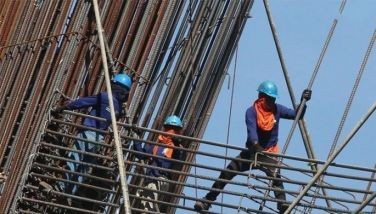MSME credit database much needed — ADBI
MANILA, Philippines — The government should set up a credit information infrastructure to improve the capacity of financial institutions to increase lending programs to micro, small and medium enterprises (MSMEs), especially during the pandemic.
In a working paper, Tokyo-based Asian Development Bank Institute (ADBI), the multilateral lender’s think tank, said MSMEs will continue to face financing challenges even after they survive the pandemic.
Author Jin-Chuan Duan said this is due to the structural roots in the informational asymmetry between the MSMEs and the lending institutions.
“Assisting MSMEs with subsidized financing rates or risk–share losses, as typical government programs reflect, will not fundamentally alter the pooling equilibrium resulting from the lack of incentives for lending institutions to invest in costly information acquisition on small loans,” Duan said.
He emphasized that the information gap between the demand and the supply side should be bridged through the creation of a credit analytics sharing infrastructure through federated learning, which completely respects data privacy.
Duan said MSMEs in emerging economies like the Philippines are having a more difficult time in securing financing as the government lacks adequate resources to help them.
Unfortunately, MSMEs were among the hardest hit sectors since the pandemic started last year, with many of them already stopping operations. Some even had to turn to informal businesses and employment to cope with the impact of the crisis.
MSMEs in the Philippines comprise 99.5 percent of all business enterprises. They take up 60 percent of all exporters and contribute 25 percent of total export revenues.
They also account for 62 percent of total employment in the country. Of all MSMEs, 53 percent are women-led and were severely impacted by the pandemic.
“We advocate building a new-style infrastructure for sharing credit information using digital technology for which the small setup and running costs can in a fundamental way help lending institutions to level their credit information acquisition costs on MSMEs vis-a-vis larger corporations,” Duan said.
“With this credit information infrastructure serving as a common good, lending institutions can still compete by offering different loan rates and banking services or by specializing in certain market niches. In our view, this ‘coopetition’ model provides a realistic and productive way to achieve fairer financing of MSMEs,” he said.
Before the pandemic in the Philippines, the government set up a credit surety fund to enhance access to finance for MSMEs and cooperatives.
The Department of Trade and Industry also started its micro financing initiative to eradicate loan sharks in the country.
“With the abundant capital and liquidity in today’s financial markets, a lack of information rather than scarce capital lies at the heart of the MSME financing challenge,” Duan said.
“Building up an MSME information-sharing infrastructure constitutes a more productive way to remove the key impediment to channeling much-needed capital to the MSME sector, particularly to those small operations that are in a better position to create jobs and contribute to economic prosperity,” he said.
- Latest
- Trending




























